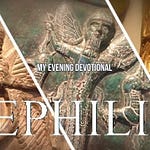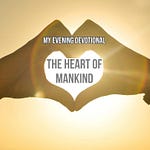Exodus 9:8-11 8 Then the Lord said to Moses and Aaron, “Take handfuls of soot from a furnace and have Moses toss it into the air in the presence of Pharaoh. 9 It will become fine dust over the whole land of Egypt, and festering boils will break out on people and animals throughout the land.” 10 So they took soot from a furnace and stood before Pharaoh. Moses tossed it into the air, and festering boils broke out on people and animals.11 The magicians could not stand before Moses because of the boils that were on them and on all the Egyptians.
Soot
Like plague number three, there is no warning about what’s to come. And like the third plague of the first series, this one also involves dust.
After an undisclosed amount of time, the Lord _said to Moses and Aaron_the instructions for the sixth plague. They were told simply to get handfuls of soot from a kiln. The Hebrew word for “soot” is used only here and in verse 10 in the Old Testament. The “kiln” referred to here is one used for making pottery or bricks, making it a symbol of Israel’s oppression.
So, the Lord tells Moses to “take soot from the kiln.” This has opened the way for a variety of interpretations. Some scholars have argued the irony in the matter. The soot could have been a by-product of baking bricks. It would be the ultimate comeuppance. Pharaoh has gone out of his way to impose unrealistic brick-making quotas upon the Israelites. Those kilns would have been used day and night. In this case, the by-product from all that baking will be used to punish the Egyptians.
The Magicians
The magicians could not stand before Moses — We do not read of any attempt they made to vie with Moses in miracles since the plague of the lice. But it would seem from this passage that they still continued about Pharaoh, and endeavoured to settle him in his resolution not to let Israel go: persuading him, perhaps, that although Moses had the better of them for the present, yet they should at last be too hard for him. But now, being on a sudden smitten with these ulcers, in the sight of Pharaoh and his servants, they were rendered so contemptible, that they durst not again look either Moses or Pharaoh in the face; for we hear no more of them after this time. To this, it seems, the apostle refers, (2 Timothy 3:9,) when he says their folly was “manifested unto all men.”
Pharaoh’s magicians make one final appearance, paving the way for all extraneous parties to fall away. The final conflicts have been heading towards a showdown between the Lord and Pharaoh.
After this plague we will so no more appearances of the magicians i n this conflict.
Pharaoh confronted
The Lord tells Moses, “Let Moses throw [the soot] in the air in the sight of Pharaoh.” Pharaoh is given no opportunity to speak or to halt the process.
Note that the previous plague affected mostly livestock. Certainly, the Egyptians have animals that aren’t livestock and there are leftover animals that where not in the field (last plague involved animals in the open).
We can also read, “But the Lord hardened the heart of Pharaoh, and he would not listen to them, just as the Lord has spoken to Moses.” That the Lord would “harden Pharaoh’s heart” is an appalling statement, but it cannot be taken out of its contextual setting. On two separate occasions, the Lord has foretold that this would happen (See 4:21; 7.3). On two previous occasions, Pharaoh hardened his own heart (see 8:15, 23). Now, the time has arrived: “The Lord hardens Pharaoh’s heart.”
From the beginning, this has been a contest between the Lord and Pharaoh. Who has power, and who is in control? Pharaoh is used to having things his own way and to having the power at hand to enforce whatever decision he makes. The Lord has a way of showing him the errors of such thinking. In this instance, the Lord is exercising control. Pharaoh might be thinking that he still has options; he might be exploring disaster plans or recovery strategies. None of that enters into the text.
At this point Pharaoh he is no longer in charge of his thinking. The Lord is controlling everything, and that includes his mind and thoughts. Not that there is any reason to think Pharaoh might be on the verge of a change of heart. But the truth is that he cannot, even if it were to cross his mind. The Lord is in charge. The Lord has the power.
Proverbs 14:12 There is a way that appears to be right, but in the end it leads to death.














Share this post